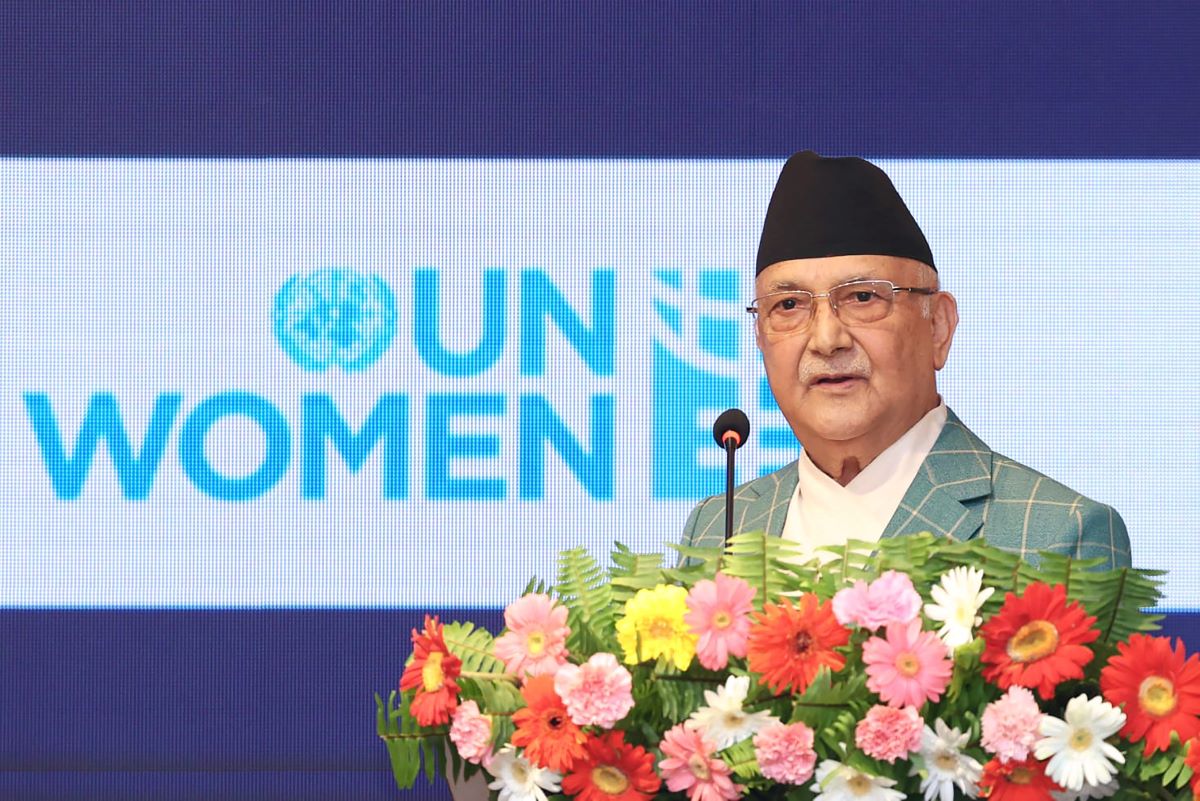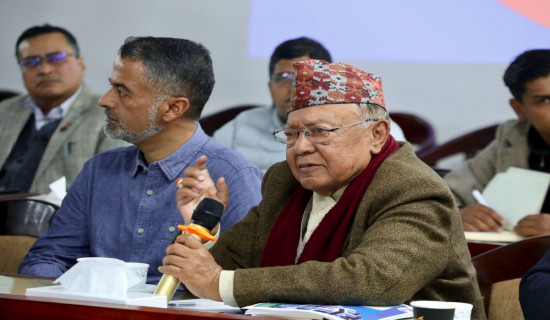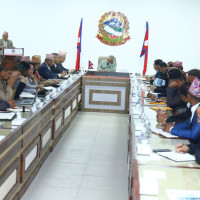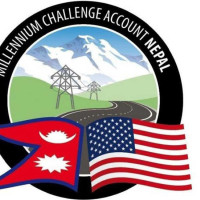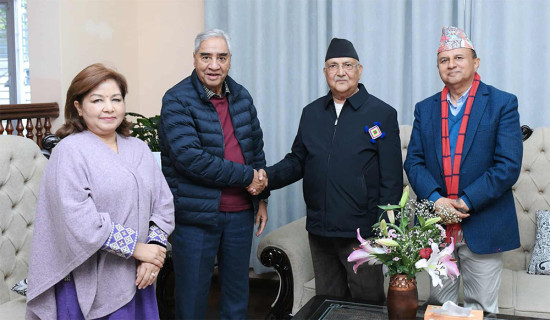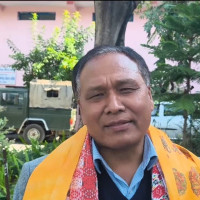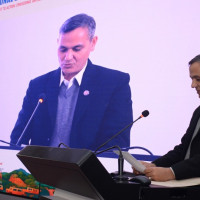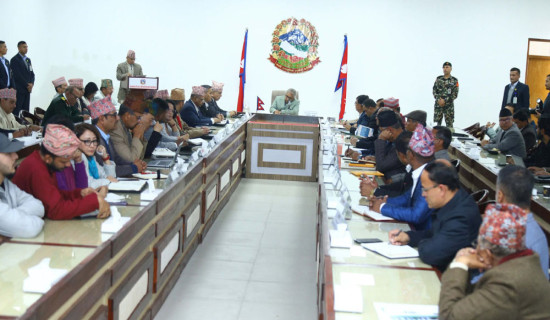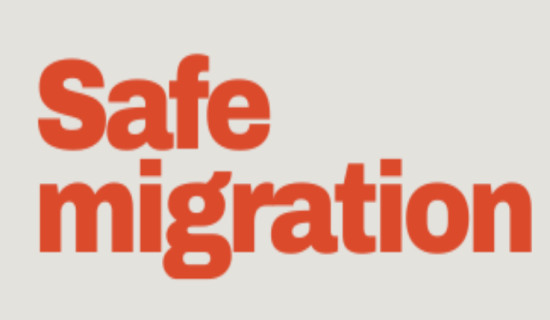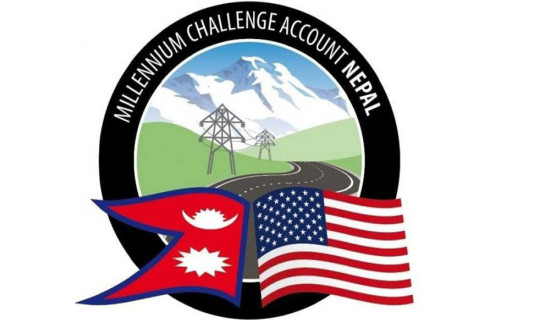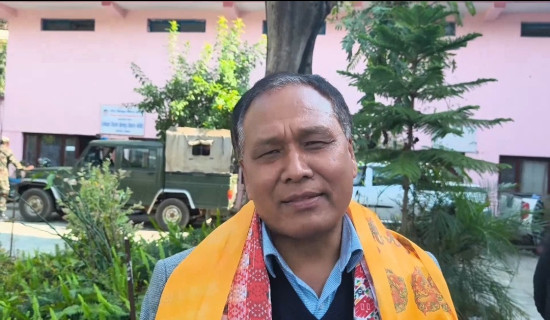- Tuesday, 23 December 2025
International conference on gender inclusion in NHRIs kicks off
Kathmandu, Sept 3: The three-day international conference on gender inclusion in National Human Rights Institutions has kicked off in Kathmandu from today.
More than 150 representatives from 19 countries of Asia and Pacific region have been participating in the conference inaugurated by Prime Minister KP Sharma Oli. The conference was organized by National Human Rights Commission.
On the occasion, Commission Chairperson Top Bahadur Magar shared that the conference was organized with an objective of reducing inequalities prevailing in the world.
He expressed the belief that conference would be successful in addressing the issues of gender inclusiveness more effectively as there are still many challenges though there are some improvements on this issue.
Sharing that patriarchal mindset is gradually disappearing, Minister for Women, Children and Senior Citizens, Nawal Kishwor Sah Sudi, stressed that there is still much to be done.
He further said it is now clear that there should not be gap between women and men.
Similarly, Chairperson of National Women Commission, Kamala Parajuli, said though national and international laws are effective, there are still challenges in implementation.
She expressed hope that the conference would focus its attention towards it.
Through a video message, Chairperson of the General Alliance of National Human Rights Institutions, Mariam Abdullah Al Attiyah mentioned that women, children and people from marginalized community of the world have been facing discrimination.
Chairperson Attiyah stressed that as the responsibility of human rights commission of every country is to reduce differences and discrimination, so much works should be done being committed towards human rights of citizens.
Likewise, NHRC member Dr Lily Thapa shared that there is still gender biasness in different countries including Nepal. She added that it has been expected that the international conference would help to remove such biasness.
Recalling that it has been expected that different types of 15 percent dissimilarities taking place in the world be removed by 2030, UNDP Nepal, Resident Representative, Kyoko Yokosuka, mentioned though Nepal's constitution is very progressive, challenges have been seen to materialize it.
Schedule of the Conference
The three-day event participated by over 150 representatives including chairs of human rights institutions of four countries and 38 foreign representatives from 19 countries.
According to the National Human Rights Commission's joint secretary, Nawaraj Sapkota, seven-panel discussions on various themes will be held during the Conference.
The first-panel discussion is entitled Pluralism in Policy and Practice Justice and it is to be chaired by Justice Anup Raj Sharma, former Chairperson of the National Human Rights Commission Nepal it is to be followed by a discussion themed Implementation Status of Amman Declaration to be chaired by Pravesh Sharma, Chairperson and Proceedings Commissioner, Human Rights and Anti-Discrimination Commission, Fiji.
The third panel discussion themed GESI Mainstreaming within NHRIs is to be chaired by Bandana Rana UN CEDAW Committee Member.
The third discussion on Integrating Gender Perspectives in Policy and Legislative Review by NHRIs will take place on Wednesday under the chair of Dr. Anand Mohan Bhattarai, former Justice of the Supreme Court of Nepal and it will be followed by two more same day.
Human Rights Forum on ‘Enhancing the External Works of NHRIs’ will be chaired by Mariyam Muna, President, Human Rights Commission of the Maldives and the Role of NHRIs in Promoting Intersectionality in Asia Pacific Region will be chaired by Dr. Ram Krishna Timalsena, former Chairperson, the National Inclusion Commission of Nepal. (RSS)

